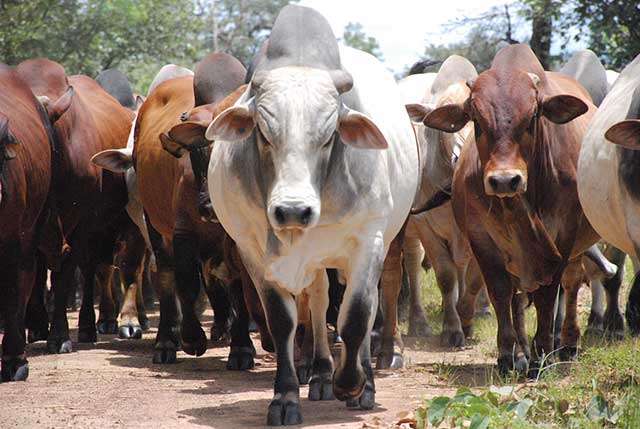Western Province has received 525,000 doses of the Contagious Bovine Pleuropneumonia (CBPP) vaccine doses earmarked to vaccinate about 600,000 herds of cattle in the region.
Provincial Veterinary Officer, Stephen Tembo says government has released CPBB doses to reduce escalating levels of the disease in the province.
Dr. Tembo said CBPP is endemic and as such more concerted efforts are required to reduce the cattle disease prevalence in the province.
He disclosed this in an interview with ZANIS during formation of Nalolo district technical working group with the sole target on zoonotic diseases being supported by the Breakthrough Action Zambia in conjunction with the USAID.
“As an office, we are calling on all the cattle farmers to present their animals for vaccinations when the programme commences this month. We have recorded some pockets of mortality rates of cattle in districts where farmers did not bring their cattle for vaccination in the last year CBPP vaccination. We don’t want a repeat,” he explained.
Dr Tembo said during this vaccination exercise, priority will be given to districts that were not fully covered such as Shangombo, Sioma, Senanga and Kalabo where some places were not fully covered.
“We have observed misconceptions or myths from our cattle farmers of not bringing their animals for vaccination. If we don’t get good coverage, the province will still record incursions of CBPP in the province,” he said.
Dr. Tembo has however, called on cattle farmers in the province to get more information from veterinary camp officers on CBPP vaccination exercise as the government is offering CBPP vaccines free of charge and therefore, farmers should take advantage of thEfree will from the government.
He also revealed that government through the department of veterinary has employed 150 cordon guards in order to re-establish the cordon line that will run from Kasaya in Mwandi district to Lupui in Mitete district covering a distance of 750 kilometers.
“The re-establishment of the cordon line by the ministry is to ensure that animals from our neighbouring countries do not cross over the line without being scrutinized so that cattle diseases are controlled in Western province,” Dr Tembo said.
And Breakthrough Action Zambia Risk Communications and Community Engagement Programme Officer, Felix Mpundu said the organisation has formed a technical working group in Nalolo, adding that the group is making significant progress in continuing sensitisation efforts towards the control of zoonotic diseases including rabies and anthrax.
Mr Mpundu has urged the newly incorporated group members to ensure continued sensitization as Nalolo district is prone to outbreaks of anthrax.





